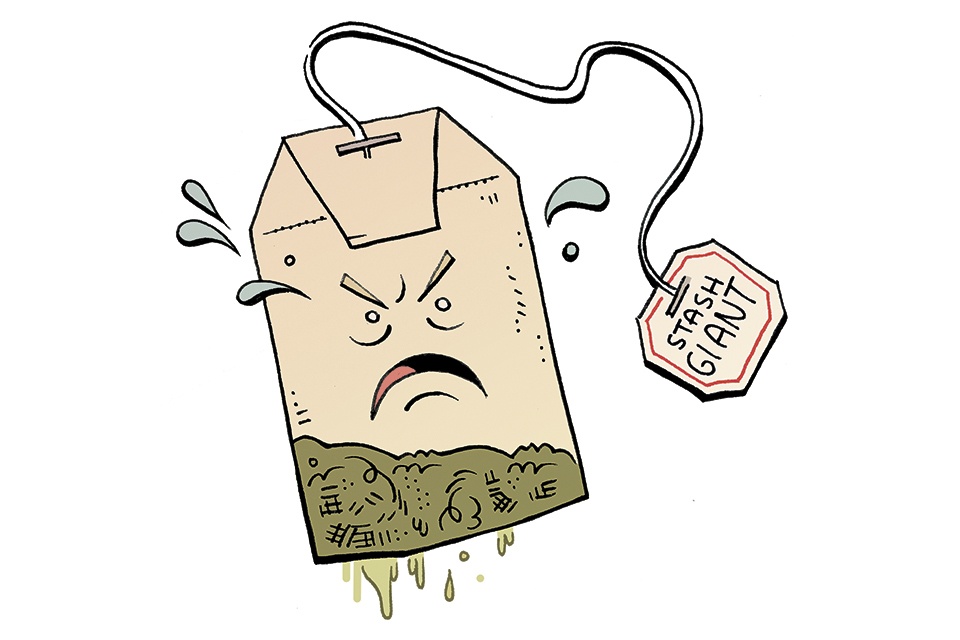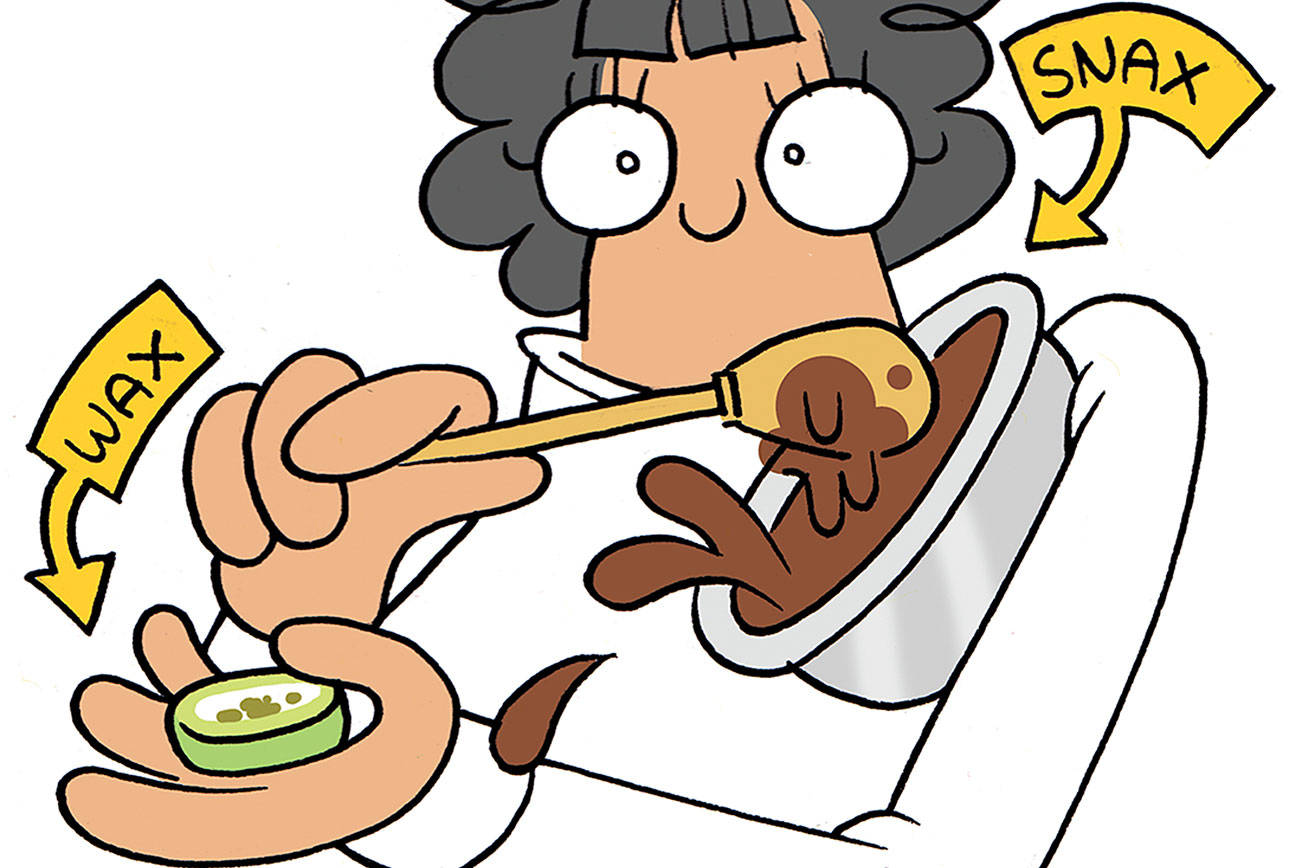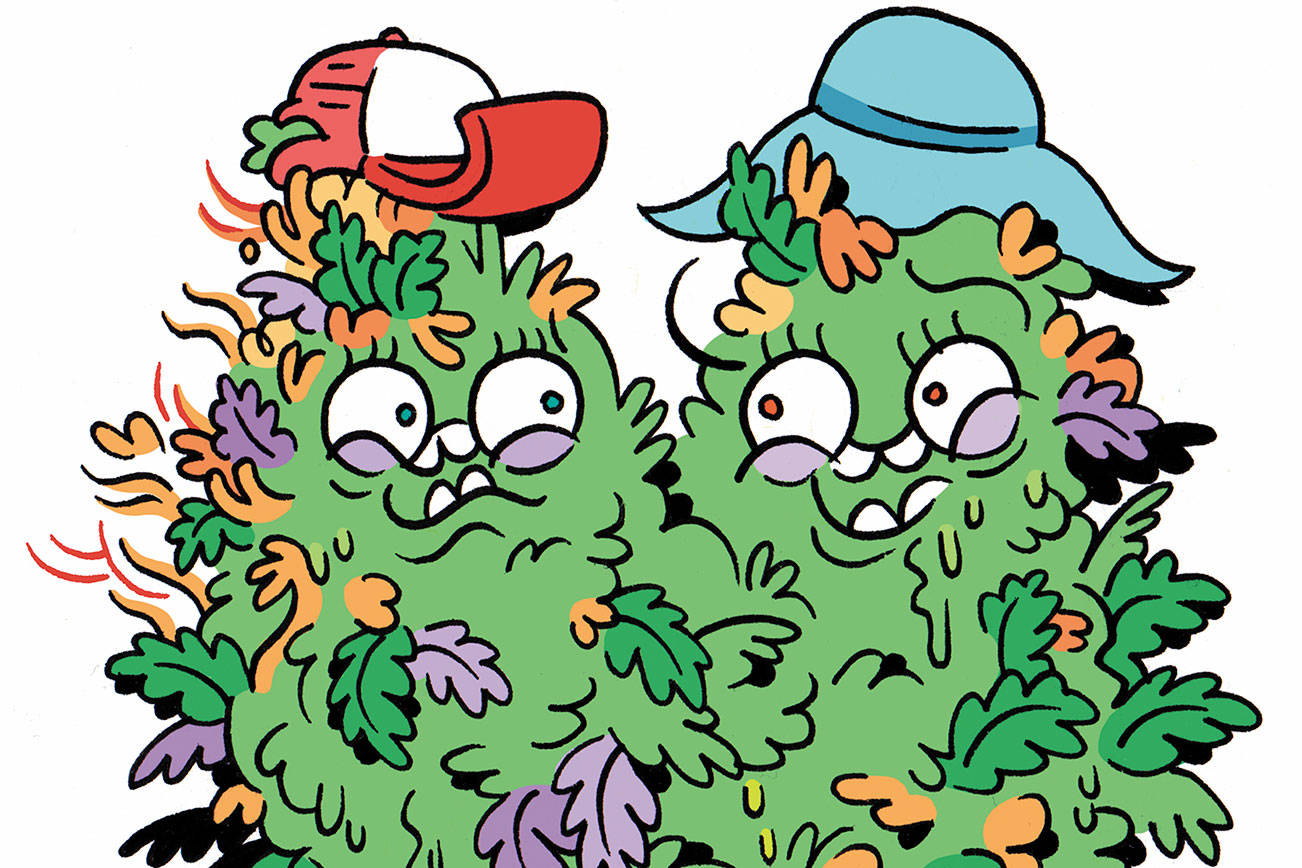KC Franks comes from a medical-marijuana background, and sees that cannabis can be beneficial. “I just see a lot of good it does, not only from the medical side of things, but by helping people enjoy themselves, or assisting their creative process, or just getting them to let loose.” A year and a half ago, when he opened his (Stash) Pot Shops—one in Ballard, another in Lake City—the company has been based on three ideas: “Community. Culture. Cannabis.”
But Franks’ efforts hit a speed bump last spring when his company was served with a cease-and-desist letter from the Yamamotoyama Tea Company, demanding he change the name of his stores. Yamamotoyama sells tea under the name Stash Tea Company, and it considered Franks’ company name a copyright infringement. The company sent a similar letter to Stash Cannabis Company in Beaverton, Oregon.
“We discussed whether it was worth fighting for the name—we actually looked down that road for a while. I never thought we were operating in the same sphere of business,” says Franks. From new storefront signs to advertising and business licenses, the costs of such an endeavor are daunting. A major brand shift also is not ideal for any company, let alone one only a year and a half old. Then the company held a focus group with employees, customers, and community members, and also considered the advice of trusted members of the industry. Out of all these conversations, the name “(Lux) Pot Shop” was born.
A reference to the measurement of brightness in the lights used to grow cannabis, the new name provided the company with an opportunity to refocus on its main tenet: “illuminating” the community on all the beneficial things cannabis can do. “From the very beginning, our goal has been to shed light on decades of misinformation,” explains Franks. He believes the pressure to change is indicative of the direction of the cannabis industry. “I don’t believe this is an isolated incident. People involved in industries around the world are watching the microcosm of the cannabis industry.” And as the industry begins to take itself more seriously, so too the rest of the business world is having to reckon with the presence of pot.
This conversation is happening at a crossroads of cultural ignorance, corporate appropriation, and shared languages. It’s very likely that the Yamamotoyama Tea Company doesn’t understand how ubiquitous the word “stash” is in cannabis culture. (See, for example, the name of this column). According to the Oxford English Dictionary, “stash” has been used to describe “a quantity of an illegal drug, especially one kept for personal use” since the late 18th century. Stash Tea Co. is going to have a hard time quashing the usage of the term in the cannabis community. Conversely, with the elevated attention cannabis industries are starting to receive, all those weed retailers, processors, and producers out there that are named with a play on a corporate brand name are going to have to switch it up.
The cannabis industry is trying to go legit; perhaps part of that process will be the editing of our own image. Is this just an example of those growing pains? Perhaps weed is learning to tie a tie and eat with the right fork. However, it may be at the loss of our cultural identity.
stashbox@seattleweekly.com







